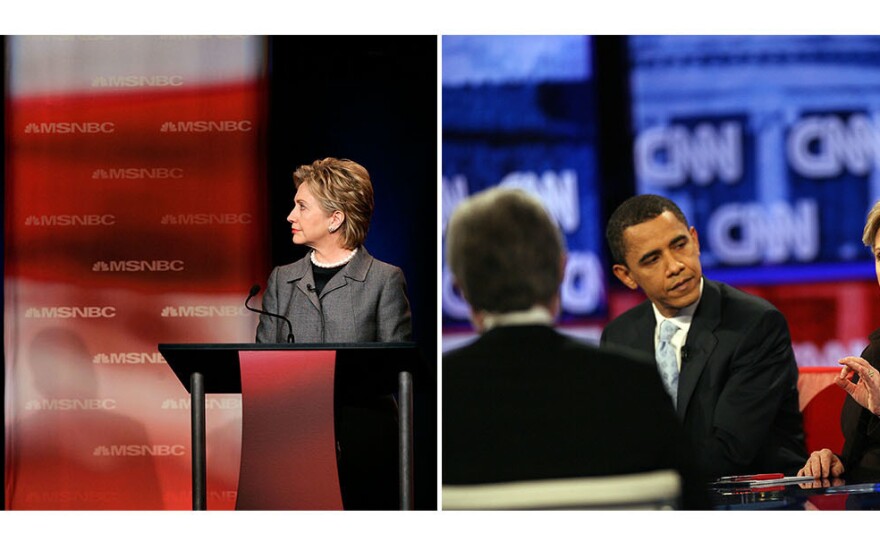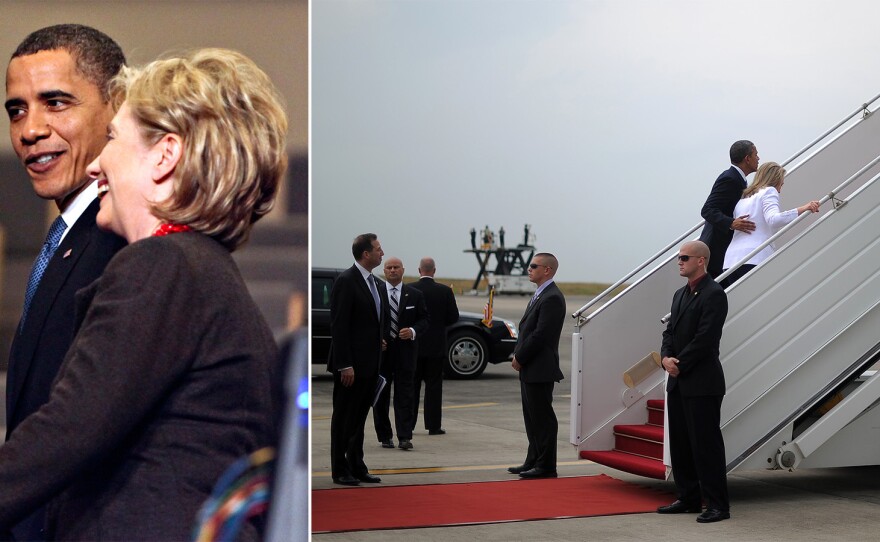
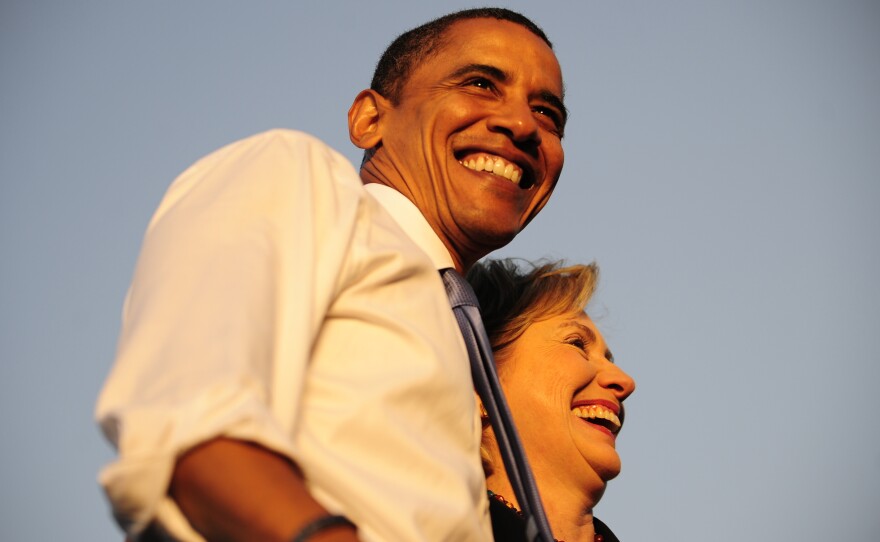
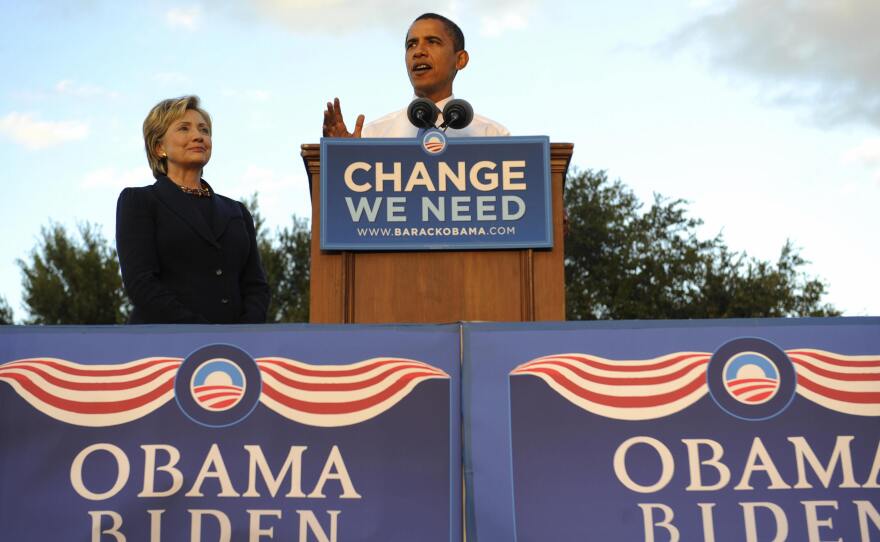
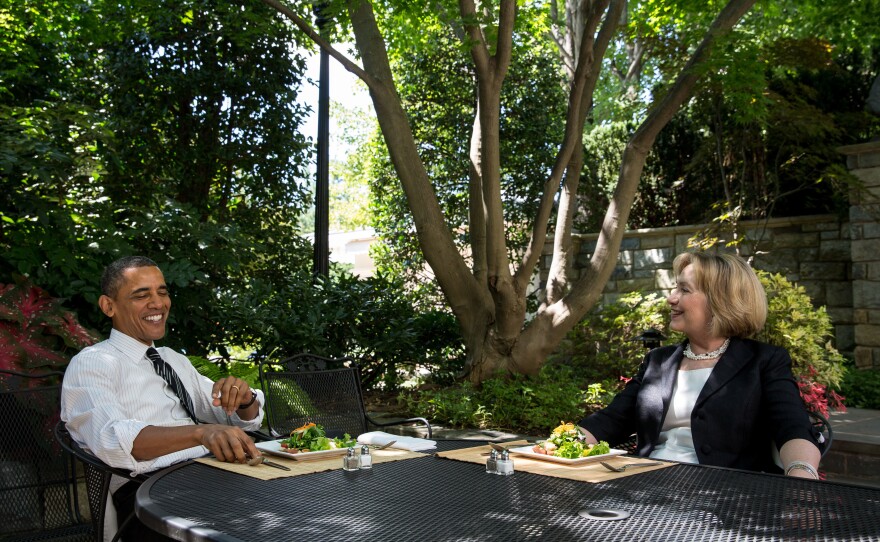
A lot can change in eight years.
Back in 2008, Barack Obama helped keep Hillary Clinton out of the White House. Now he's endorsing her bid for president.
And he is likely to be one of her best campaign weapons.
"I've gotten to know Hillary really well," the president told Glenn Thrush on a Politico podcast. "She is a good, smart, tough person who cares deeply about this country."
That's what he says now.
The two were a lot less chummy in the winter of 2008, when they waged a bitter primary battle. Clinton shamed Obama, telling him to run a campaign consistent with his messages in public.
And Obama said that while he was a community organizer, watching as jobs were shipped overseas, Clinton was a "corporate lawyer sitting on the board at Wal-Mart."
He said he barely found Clinton "likeable enough."
As we know, Obama won the nomination. And days later, the two candidates held a secret meeting. They huddled privately at the Washington home of Sen. Dianne Feinstein to bury the hatchet.
"They were able to talk through a lot of the things that had gone on in the primary," recalled Tommy Vietor, one of Obama's original staffers, "and when she gave that speech endorsing him, that was an enormous step forward in terms of bringing the party back together, mending their relationship."
But the staffers from the two campaigns were not so quick to mend fences. Neera Tanden had been Clinton's policy director, and after the primary, she went to work for Obama.
"Having been on the campaign side, I can tell you Barack Obama was a lot faster getting past the primary than the vast majority of his campaign," Tanden says.
Indeed, many of Obama's loyalists were stunned when he picked Clinton to be his secretary of state.
"I was absolutely floored. It was a total shock," Obama speechwriter Ben Rhodes told former political adviser David Axelrod in a podcast. "There were some hard, raw feelings in that campaign."
The tension flowed both ways. Rhodes says Clinton staffers would stop talking when he walked into a room. Obama staffers vetoed Clinton's effort to appoint one of her trusted allies, Sidney Blumenthal, to a State Department post.
Clinton's own emails suggest that she had trouble penetrating the insular White House culture at first. But Rhodes says the secretary quickly won him over, once he was assigned to help Clinton through her confirmation hearing.
"She could not have been more warm. She could not have been more gracious," Rhodes said. "Everything people say about working with her is true. She just totally threw herself into the job from the second she accepted it. So that made it much easier to kind of quickly leave that past behind."
Rhodes says another milestone came in the winter of 2009 when President Obama and the secretary attended the Copenhagen climate summit together. The summit failed to produce much of a climate agreement, but it did improve the working climate between Obama and Clinton. They were forced to improvise as they chased down foreign leaders.
"They had to spend the whole day in shuttle diplomacy with the Chinese and the Indians and the Europeans," Rhodes said, "but they were enjoying themselves."
For four years, Clinton served the president as a loyal and hard-working Cabinet secretary. Now that she's a candidate, she's chosen to distance herself from the administration on some issues: She recently came out against Obama's Pacific trade deal, and she's long been more hawkish than the president toward Syria.
Despite those differences, Tanden says Obama will be a potent campaigner for Clinton. Obama's overall approval rating now tops 50 percent. And he'll play an especially important role in trying to mobilize the young and minority voters who twice helped to elect him.
"Hillary isn't running for the third term of President Obama," Tanden said, "but obviously they share core principles. And I think he would be very comfortable campaigning for her."
Clinton herself has said Obama is a more natural retail politician than she is. And while Obama's not on the ballot, he is itching to help out.
After all, many of his own policies and his legacy depend on keeping a Democrat in the White House.
Copyright 2016 NPR. To see more, visit http://www.npr.org/.


